27 Jun 2025
11 MIN READ
Why Does Balochistan Want Independence From Pakistan?
Summary
Pakistan's largest province, Balochistan, has a long struggle for independence. Its history is deep-rooted in grievances, cultural suppression, economic exploitation, political marginalization, and human rights abuses.
While the Pakistani government regards it as a separatist rebellion, many among the Baloch population view it as a struggle to reclaim their sovereignty. The demand for Baloch independence has evolved into a structured movement, involving armed insurgents, political activists, student groups, and diaspora communities.
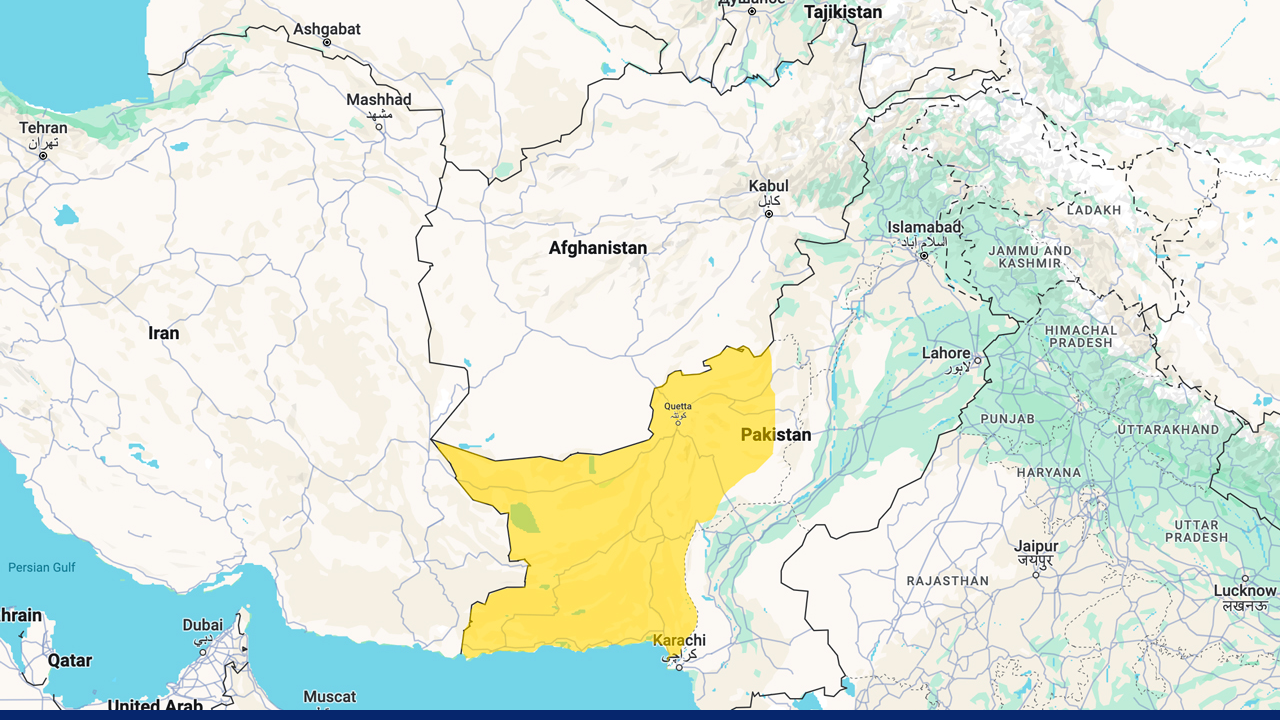
The political boundaries of Balochistan, the largest province of Pakistan, bordered by Iran, Afghanistan, and the Arabian Sea. Credits: Unrepresented Nations and Peoples Organization
Historical Background of Balochistan
Understanding Balochistan’s early history
Historically, people of Balochistan are believed to have migrated eastward in the 11th century due to pressure from the Seljuk Turks in Persia. Over time, they formed tribal confederations, such as the Khanate of Kalat in central Balochistan. The people referred to as Baloch created their own codes, language, and culture.
Balochistan under Safavid, Mughal, and British control
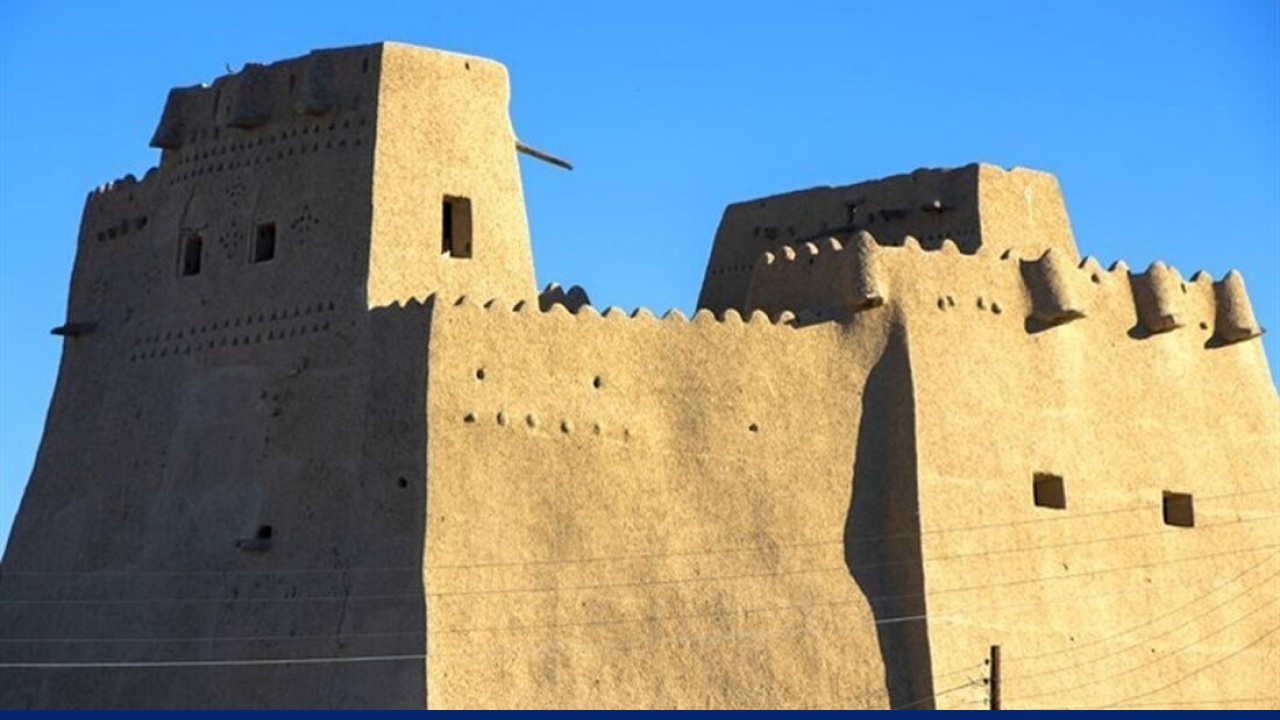
Sib and Suran, a Safavid era historical castle of Sistan. Credits Wikimedia Commons
In the 1500s, Balochistan was divided between the Safavid and Mughal empires. This divide influenced the current Iran-Pakistan border. Later, British colonization altered eastern Balochistan. Some regions were directly ruled, while others became princely states. Meanwhile, western Balochistan came under the rule of the Qajar Empire of Persia.
Before colonization, Balochistan had loose governance under the control of tribal groups. The Khanate of Kalat was the leading authority in the 17th century. The British saw its strategic value and increased their influence in the 19th century. They made treaties with local leaders while keeping indirect rule.
The 1948 Annexation of Balochistan by Pakistan
In the aftermath of British colonial rule, which ended in 1947, the princely state of Kalat declared its independence. In March 1948, Pakistan forcefully annexed the territory. This sparked strong resistance from the Khan of Kalat and led to the first of many uprisings. The annexation is a key grievance in Baloch nationalist history. It marked the start of a tense relationship between the Baloch people and the Pakistani state.
The rise of the Baloch Liberation Army & other insurgent groups
The Baloch Liberation Army (BLA) transformed from a mountain guerrilla force to a strong urban insurgency. This change was driven by Baloch nationalism and issues over resources. Initially, the BLA wanted political autonomy and control over regional resources. Now, its focus has shifted towards separatism, reflecting growing discontent within Baloch society.
Social media and urbanization further mobilized the BLA. This is particularly true for educated youth who are frustrated with the state. The group enjoys social support and has sanctuaries in Iran and Afghanistan. They also access advanced weapons from Afghanistan.
Leadership has moved from tribal elites to middle-class activists. This change makes the movement more inclusive. They gained a lot of international attention after launching attacks on Pakistani military forces, gas pipelines, and Chinese interests (e.g., the China-Pakistan Economic Corridor).
The BLA is by far not the only Baloch insurgency group. There are a handful of others, such as the Baloch Liberation Front (BLF), which is led by Dr. Allah Nazar Baloch and focuses on southern Balochistan. The Baloch Republican Army (BRA), connected to Brahamdagh Bugti, was active in the east. In 2022, it merged with the United Baloch Army (UBA) to create the Baloch Nationalist Army (BNA). The BNA has since grown and now operates in urban areas, including Lahore, where it targets state and economic infrastructure.
The role of Baloch independence leaders
Leaders such as Prince Abdul Karim of Kalat fought against the annexation. Other leaders, Nawab Akbar Bugti, Mir Ghaus Bakhsh Bizenjo, and Balaach Marri, also came out to support the Baloch nationalist cause. Despite facing state repression, these leaders played a key role in mobilizing resistance and keeping the independence movement alive.
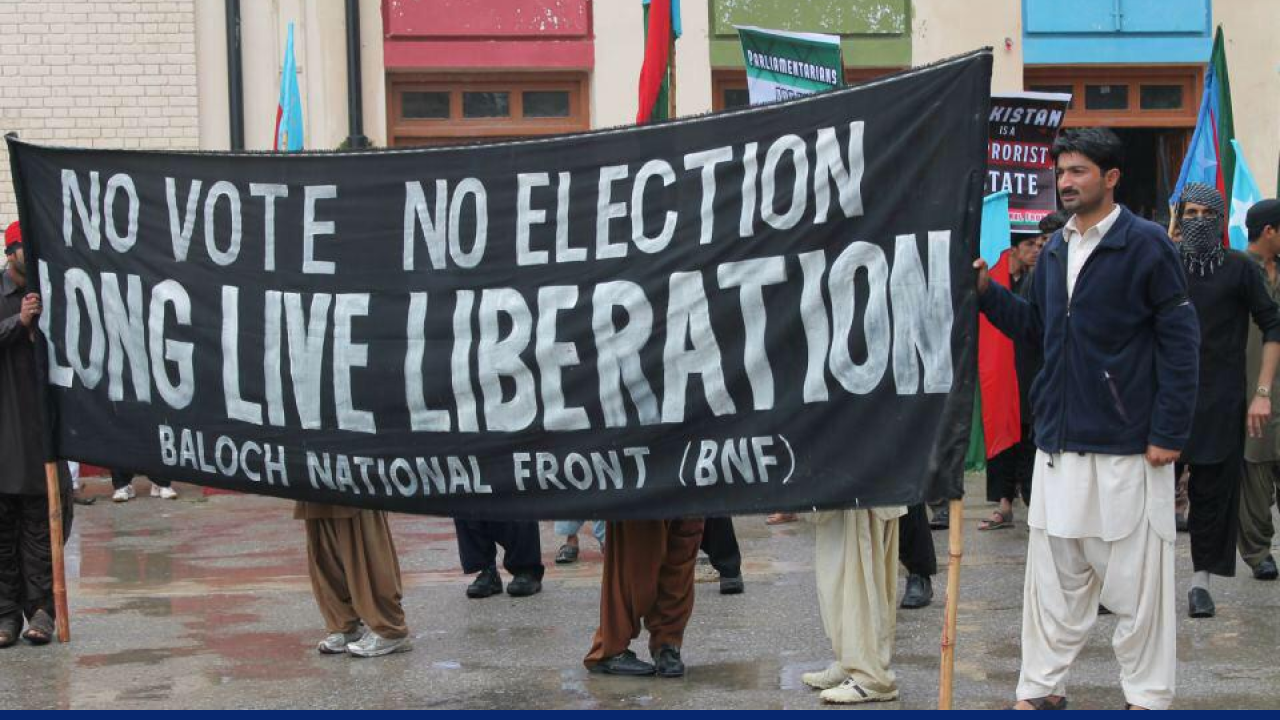
Members of the Baloch National Front (BNF) protest against elections, demanding independence and highlighting their call for liberation. Credits: X@Baloch Writers
Mir Yar, a Balochistan leader, allegedly declared independence from Pakistan on May 19th, 2025. He cited decades of violence, enforced disappearances, and human rights violations. The primary demand apparent is the right to govern their land, culture, and resources without outside control.
He wrote a letter to the UN, requesting recognition of Balochistan as a sovereign country. They are also seeking India’s support, which comes at an opportune time, as Indian-Pakistani relations have again reached a low point.
Balochistan’s Cultural and Ethnic Suppression
The marginalization of Baloch culture and language
The Balochi language and culture are at risk of marginalization due to multiple factors. Despite having a shared cultural identity and being a primary ethnic language in Pakistan, Balochi is rarely promoted in schools, media, or state institutions. The language is sidelined in favor of Urdu and English. This push for a single national identity in Pakistan takes priority over the drive to preserve the cultural heritage of the Baloch people.
The national crackdowns on Baloch culture have significantly impacted the community's morale and self-esteem. Many young Baloch feel disconnected from their roots, leading to cultural alienation and increased resistance. The state's neglect or active suppression of Baloch cultural expression fosters further resentment, making the Baloch feel like "foreigners in their land."
Baloch’s cultural resistance through poetry, media, and activism
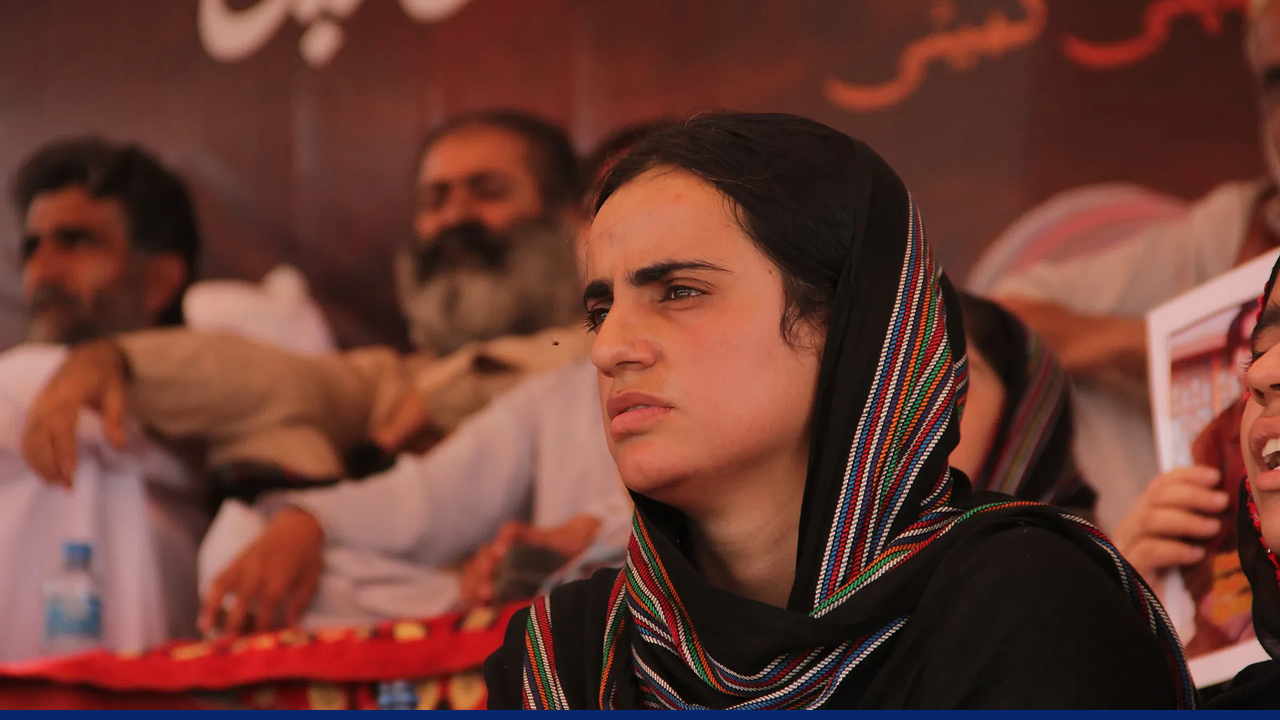
Mahrang Baloch, a human rights activist from Balochistan, looks on with hope during a public gathering, symbolizing resilience amid ongoing calls for justice and autonomy. Credits: News18
For the Baluch people, resistance has been more of a cultural legacy than just political defiance. Leaders and scholars are working hard to revive and protect the Baloch identity. Figures like Mir Gul Khan Naseer utilized poetry and literature as tools of resistance. Modern activists continue to organize cultural events, publish in Balochi, and use social media to raise global awareness, despite the potential dangerous consequences.
Political Marginalization and the Demand for Autonomy
Political exclusion of Balochistan
Balochistan is politically marginalized even though it is Pakistan's largest province. The central government often appoints administrators without local consent, thereby excluding them from the political process. Most major political decisions are made without consulting Baloch representatives.
Since Baloch local governance is weak, military influence often dominates civilian authority. This exclusion also plays a role in hindering any type of social progress in the region, as it feeds into the narrative that the area is more “backward” than others in Pakistan.
Why does Balochistan demand political autonomy?
Baloch nationalist parties and leaders demand greater autonomy, with a strong emphasis on independence. There are proposals for federalism or confederation models that would allow Balochistan to self-govern. These demands are often overlooked, leading many to believe that complete independence is the only viable solution.
Politicians such as Dr. Allah Nazar Baloch and Hyrbyair Marri have spoken internationally about the need for political rights and autonomy. Their advocacy emphasizes how political suppression has closed off peaceful channels for redress, prompting the movement to shift toward more radical demands.
Economic Exploitation and Resource Injustice in Balochistan
Natural resources vs. underdevelopment
Balochistan is rich in natural resources like gas, gold, copper, and coal. However, it is still Pakistan’s least developed region. The province plays a significant role in the national economy, primarily through the Sui gas fields. Still, it doesn’t receive much in terms of infrastructure, education, or healthcare.
Does a lack of development mean exploitation?
Balochistan lacks many necessities, including clean water, electricity, and schools. Poverty is rampant while unemployment is high. Many feel bigger players are exploiting Balochistan while its people suffer from it, which fuels the independence movement.
What is the role of Baloch independence leaders against exploitation?
Leaders argue that economic justice needs political freedom. They view the central government's control over resources and the involvement of foreign investors, such as in the China-Pakistan Economic Corridor (CPEC), as new forms of colonial exploitation.
Military Presence and Human Rights Violations in Balochistan
Enforced disappearances and collective punishment
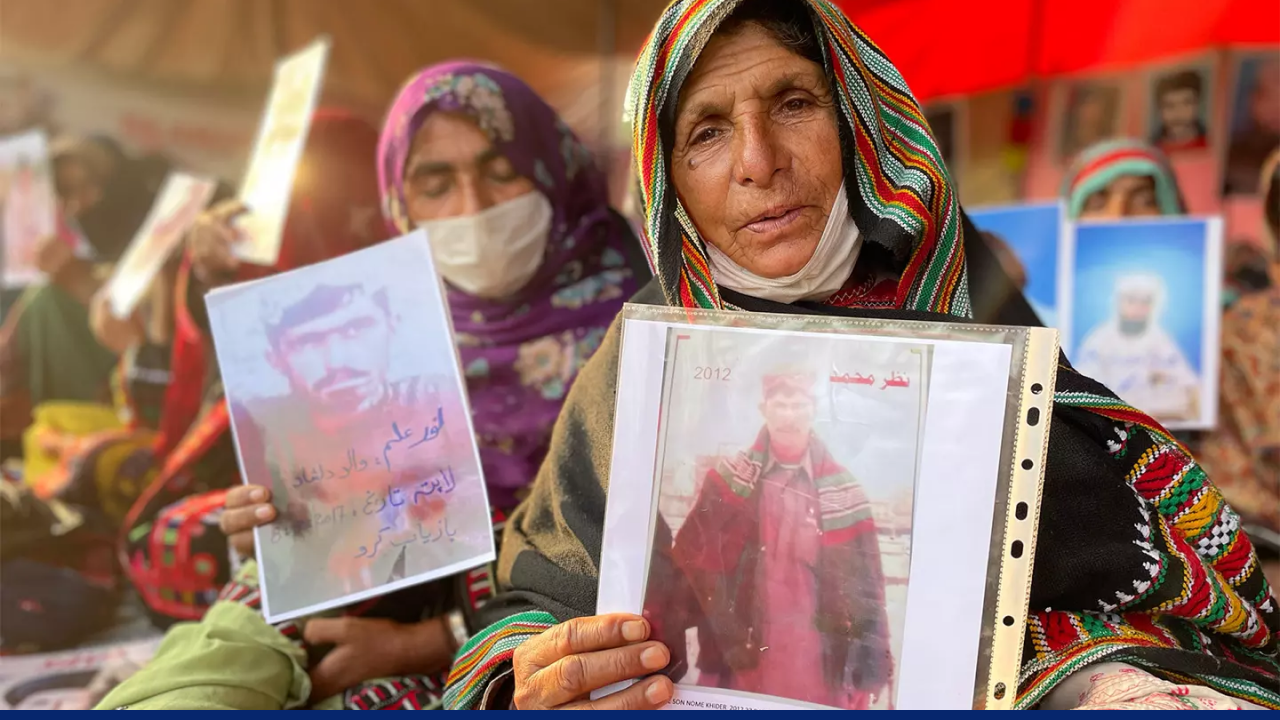
Protesters against Pakistan's intelligence services accused of "disappearing" thousands of Baloch men over the last 20 years. Credits The New Humanitarian
The Pakistani military has a strong presence in Balochistan. This has led to many reports of human rights abuses and violations. Enforced disappearances, extrajudicial killings, and torture of activists, students, and journalists are standard.
The constant surveillance, raids, and military operations take a heavy toll. Whole villages have been displaced during anti-insurgency actions. Many fear abduction or targeting for speaking out, which silences them and deepens mistrust. These rights abuses also play a part in reinforcing the extremism and violence from Baloch nationalists.
How do Baloch leaders resist state repression?
Leaders continue to resist despite significant risks. Many have gone underground or live in exile. They work hard to document abuses, share stories with the world, and demand accountability.
The Role of the Baloch Diaspora and Global Attention
When does the world notice Balochistan?
Balochistan is geopolitically significant due to its shared borders with Iran, Pakistan, and Afghanistan, and features essential ports, including Gwadar. Despite human rights issues, the international community prioritizes its ties with Pakistan and Iran over the rights of the Baloch people. Their interest in Balochistan grows when unrest threatens regional stability or when reports of violence, disappearances, or oppression arise.
China's investment in Gwadar, a key component of the China-Pakistan Economic Corridor (CPEC), has garnered considerable global attention. Locals often feel excluded from the economic benefits of this project. Meanwhile, human rights groups, particularly in the West, have criticized Iran's treatment of Sunni minorities, including the ethnic Baloch.
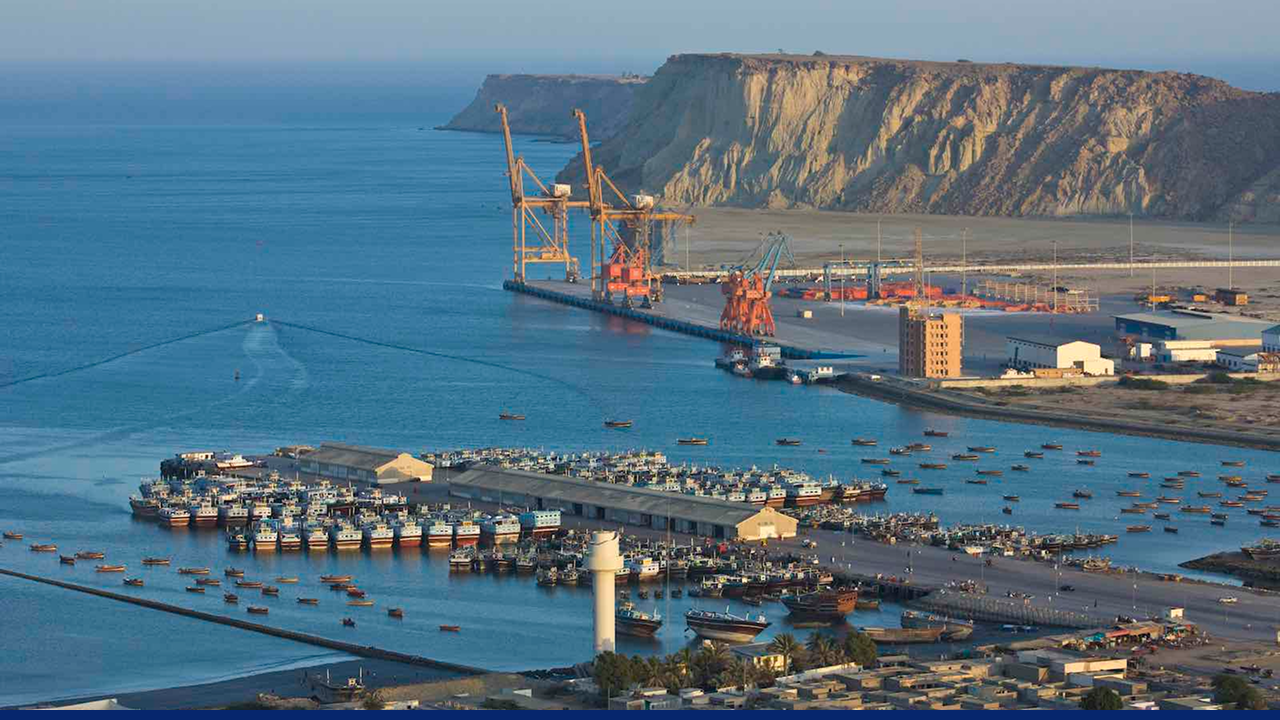
A centerpiece to China's Belt and Road Initiative, Pakistan's Gwadar port (seen here in December 2023. Credits: DW
How does the Baloch diaspora promote the cause?
The Baloch diaspora can play a helpful role in promoting the Baloch cause globally. They are found in the Gulf, Europe, North America, and, to a lesser extent, India. Baloch activists abroad petition and lobby foreign governments, partner with human rights organizations, and utilize global platforms to raise awareness about this largely unknown area. However, the diaspora faces internal divisions with the cause; some would like complete independence, and others prefer advocating for greater autonomy within Pakistan or Iran.
Who are the Baloch independence leaders abroad?
Several notable Baloch nationalist leaders and activists operate from exile. Many belong to groups such as the Free Balochistan Movement, the Baloch National Movement, or the Baloch Republican Party. By being abroad, they can express views that are not possible in Balochistan. Still, their activities can face diplomatic pressure from Pakistan or Iran, which label them as separatists or terrorists.
Conclusion
The future of the Baloch independence movement remains uncertain and complex. It doesn’t appear to have a near-term solution. The ongoing outside repression from Pakistan fuels grievances in Balochistan. However, the movement also faces its own infighting and limited international support.
To gain wider support, the movement should more clearly unify its goals, whether for autonomy, federalism, or independence. Ultimately, the movement's survival hinges on its ability to adapt, maintain visibility, and articulate a clear vision for Balochistan’s future.
People Also Ask
Why does Balochistan want freedom from Pakistan?
Balochistan's demand for freedom from Pakistan stems from long-standing grievances, including resource exploitation, human rights abuses, and political marginalization. Baloch nationalists point to decades of violence and enforced disappearances as evidence of systematic oppression and injustice.
Why is Balochistan important to Pakistan?
Balochistan is vital to Pakistan because of its abundant natural resources and strategic location. The province is rich in natural gas, oil, copper, and gold. It is also home to Gwadar Port, a key component of the China-Pakistan Economic Corridor (CPEC), enhancing regional connectivity and trade between China and Pakistan.
Is it true that Balochistan is a separate country?
No, Balochistan is not a separate country; it is part of Pakistan legally.
Are Baloch people Sunni or Shia?
The majority of Baloch people are Sunni Muslims, primarily following the Hanafi school.
How is Balochistan different from Pakistan?
Balochistan is Pakistan’s largest province, known for its distinct cultural and historical identity. While it is an integral part of Pakistan, it also retains a unique Baloch culture that sets it apart from other regions.
